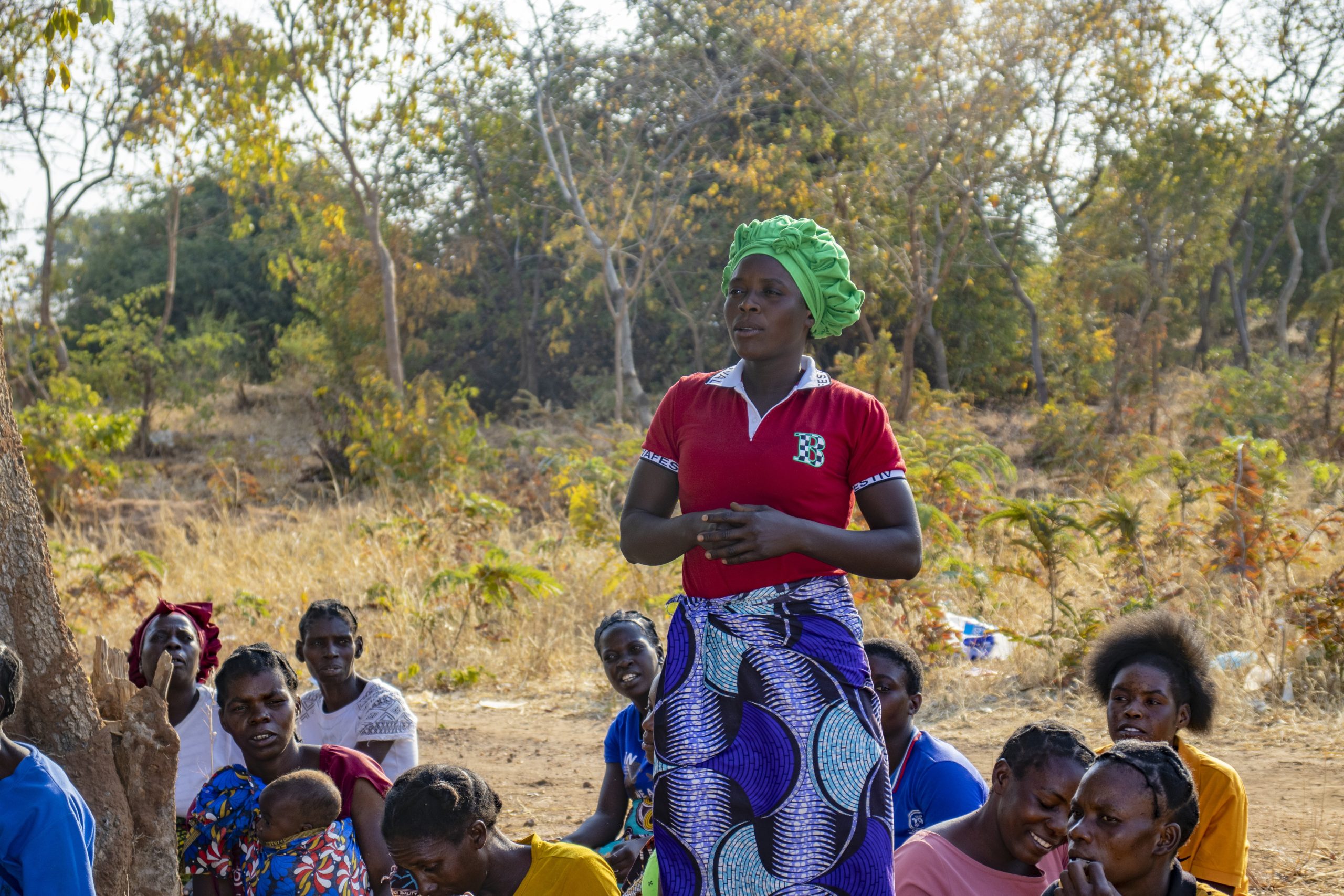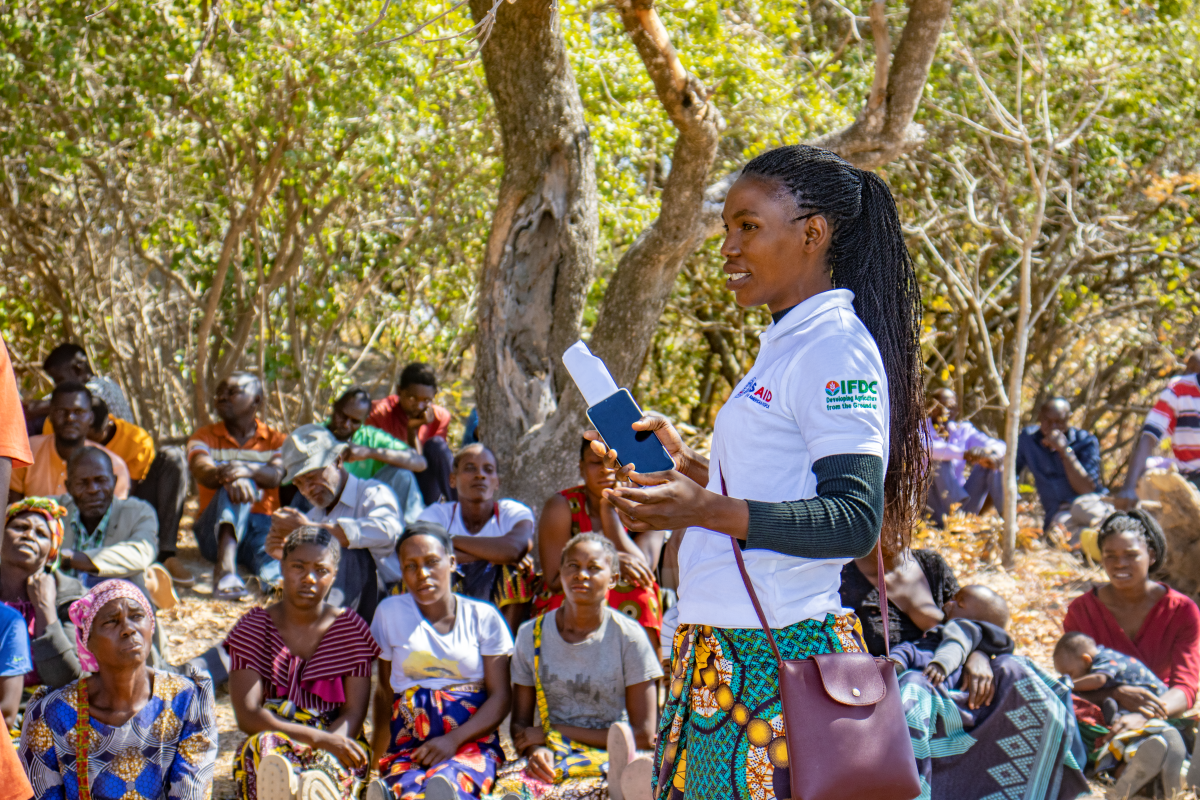
Zambia’s agricultural sector has long grappled with significant gender disparities, particularly in rural areas where women often face unique barriers to accessing essential agricultural information. Despite playing a critical role in food production, women remain significantly underrepresented as agricultural extension agents, a trend that persists not only in Sub-Saharan Africa (SSA) but also globally. Changing this narrative demands a coordinated effort from government, non-governmental organizations (NGOs), the private sector and communities to challenge deep-rooted stereotypes about women’s roles and capabilities in agriculture.[1]
The Atubandike approach, a key part of the Southern Africa Accelerated Innovation Delivery Initiative (AID-I) Rapid Delivery Hub, addresses these challenges head on. Through initiatives focusing on gender-inclusive seed systems and agricultural advisories on climate-smart agricultural (CSA) practices, Atubandike is actively working to increase women’s representation among Zambia’s agricultural advisors. By equipping communities with inclusive advisory services and training women and men digital champions, Atubandike is paving the way for a more equitable agricultural future.
This blog delves into the gender biases uncovered during recent community consultations organized by the AID-I Atubandike team in Zambia’s Southern Province across various rural districts, held in November 2023, as well as July 2024.[2] These consultations, aimed at addressing gender and youth stereotypes in agriculture, highlighted Atubandike’s initiatives to reshape the agricultural landscape for women and marginalized groups.
Community dialogues reveal deep-rooted gender biases in advisory access and spring up encouraging perspectives for female advisors
Staying true to the name, Atubandike—meaning “Let’s Chat” in Tonga—the AID-I team implementing the initiative, facilitated community discussions with over 1,700 farmers in Zambia’s Southern Province to explore underlying gender challenges in agriculture. Through these conversations, deep-seated gender biases emerged as a significant barrier. Many female agricultural advisors contend with cultural stereotypes that undermine their leadership and technical skills. As one participant noted, “Women are mostly seen as subordinates to men, so it is only natural that female agricultural advisors are viewed as less capable.” Such remarks highlight the difficult path women often tread to establish their authority in agricultural roles. Unfortunately, this bias isn’t limited to men; some female farmers also expressed a preference for male advisors, sharing the belief that “a fellow woman cannot provide valuable information.”
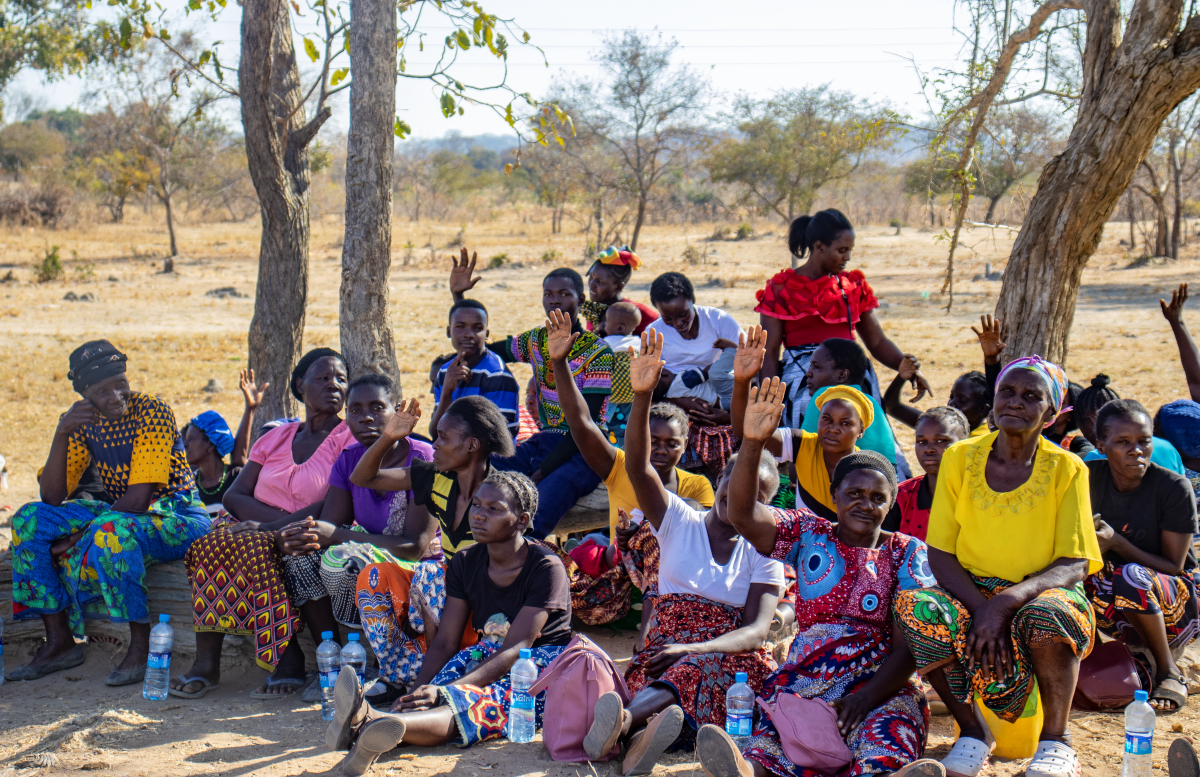
Studies on agricultural extension services confirm that gender disparities in advisory roles severely limit women farmers’ access to timely, high-quality information in SSA and other developing regions. This, in turn, impedes their ability to boost productivity and provide for their families. [3] Agricultural Advisory Services (AAS) are often designed with men as the primary beneficiaries, overlooking the need to make services more accessible and relevant to women. The dominance of male extension agents further exacerbates this issue, especially in societies where cultural norms restrict interactions between women and men outside their immediate family. These societal norms reinforce traditional gender roles, undermining the effectiveness of women as agricultural advisors. As a result, women are often excluded from opportunities that would enable them to fully participate in, and benefit from, agricultural development. This exclusion not only limits their potential but also perpetuates poverty and inequality.
On a positive note, a more nuanced perspective also emerged during the discussions. Some community members recognized the unique strengths that female advisors bring to their work. As one participant observed, “Female advisors are more careful and easier to talk to,” noting that women often prioritize technical knowledge, while men may base advice more on personal experience. This insight provides a glimmer of hope: with increased exposure and trust, farmers could become more receptive to female advisors, recognizing their effectiveness alongside their male colleagues.
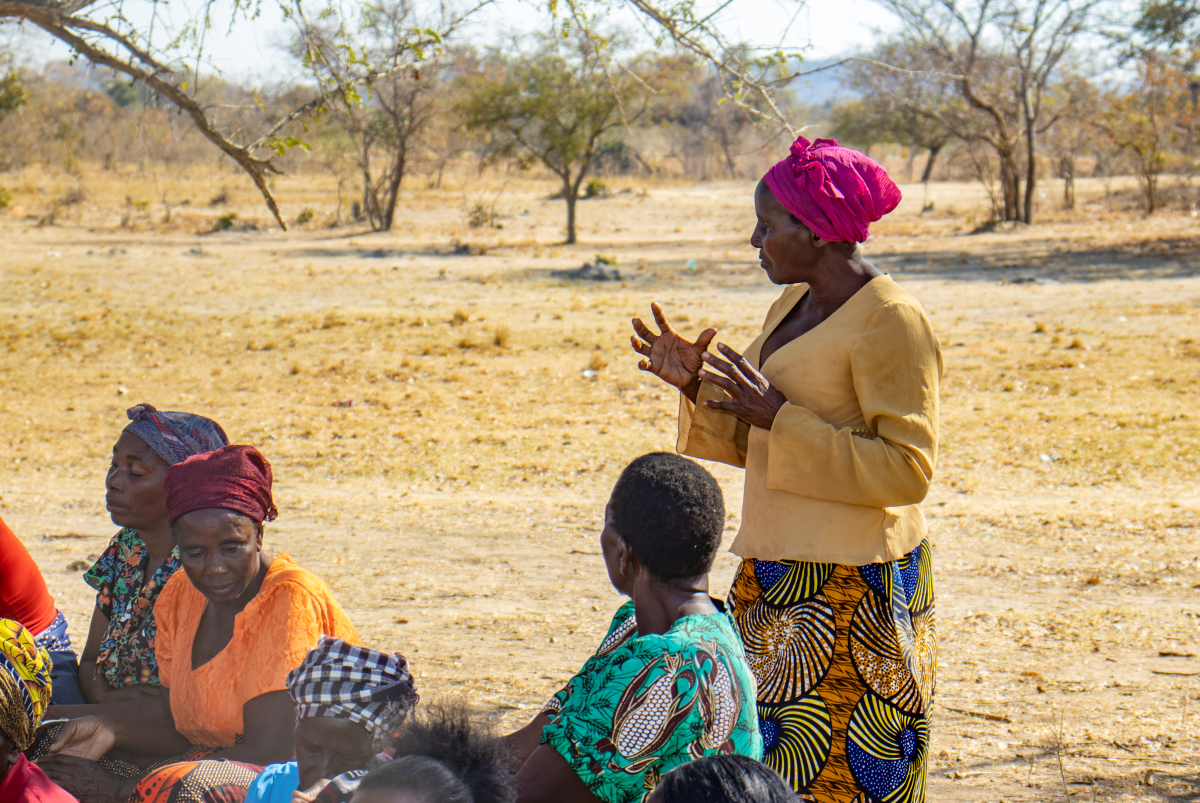
In some settings, women farmers even prefer female advisors, feeling more comfortable discussing issues and having a greater sense of shared experiences. According to a study conducted in Mozambique, women farmers were more likely to be reached as well as learn when agricultural content was delivered by female advisors. [4] This highlights the potential impact of gender-sensitive approaches in improving the efficacy and accessibility of advisory services for women.
Achieving equal footing for women in AAS requires addressing a broader range of barriers. This not only entails efforts to recruit and retain women in these roles but also providing equal opportunities for education and training, as well as developing explicit policies to safeguard women advisors from gender-based discrimination.
Breaking barriers: How Atubandike is transforming AAS
The goal of the Atubandike approach is to identify, understand and dismantle entrenched gender barriers in agriculture. By adopting an innovative and inclusive strategy, this initiative equips both men and women with the tools they need to become digital champions and agricultural advisors, playing pivotal roles in their communities. With a deliberate focus on increasing female representation, Atubandike ensures that at least 50% of these champions are women, amplifying their visibility and influence in the sector.
Central to Atubandike is its emphasis on community engagement through a feedback-driven process. This approach facilitates open dialogue among community members, urging them to confront existing social biases and develop practical solutions. Through these discussions, the initiative fosters collective action aimed at promoting gender equity and social inclusion. Additionally, Atubandike provides comprehensive training on gender, diversity, and inclusion, equipping its digital champions not only with technical knowledge but also with the skills required to challenge and navigate gender biases effectively.
One of the initiative’s most transformative elements is its focus on diverse role models. By ensuring that half of its village-based digital champions are women, Atubandike boosts their digital literacy, agricultural expertise, and standing as leaders and role models within their communities.[5] These women are featured prominently in digital content and on talk shows, reshaping perceptions of women as agricultural leaders and breaking down longstanding negative narratives that have historically sidelined them.
Sustaining Atubandike’s momentum: Community-driven support for female advisors
Community members balanced the discussions by proposing valuable insights and strategies to overcome the deeply rooted stereotypes that challenge female agricultural advisors. Raising community awareness about the value of female advisors emerged as a crucial approach to fostering their acceptance. As one participant emphasized, “More training on gender norms is essential so that the community can become more open-minded.” Others argued that establishing trust in female advisors from the outset could empower them as agents of change: “If we begin by placing our trust in female agricultural advisors, we can encourage other communities to do the same.”
Community leaders were urged to facilitate meetings to address any disrespect toward agricultural advisors, irrespective of gender. A farmer emphasized the necessity of mutual respect, stating, “The community should be encouraged to work cooperatively with their agricultural advisors.”
Participants also highlighted that agricultural advisors must actively demonstrate their competence to build trust. In one community, it was stressed that both female and male advisors “must practice the agricultural technologies they promote so that people can have faith in their competence.” Additionally, participants suggested that advisors wear uniforms to clearly distinguish their professional roles, signaling their commitment to serving the community in an official capacity.
A model for inclusive agricultural development
Atubandike transcends the role of a conventional agricultural advisory initiative; it stands as a beacon of inclusive development, extending its impact across Zambia and setting a model for the region. By delving into the roots of gender bias and driving practical, community-led solutions, Atubandike aligns with the AID-I project’s mission of “delivering with a difference.” Through empowering female digital champions and fostering dialogues on social equity, Atubandike demonstrates that meaningful change is both attainable and sustainable. As a testament to AID-I’s dedication to equitable innovation and resilience, Atubandike is not only reshaping gender norms in Zambia but is also establishing itself as a blueprint for inclusive impact across Southern Africa’s agricultural landscape.
[1] BenYishay, A., Jones, M., Kondylis, F., & Mobarak, A. M. (2020). Gender gaps in technology diffusion. Journal of development economics, 143, 102380.
[2] The informed consent statement and methodology used in the community conversations are available upon request m.fisher@cgiar.org.
[3]Bill & Melinda Gates Foundation. (2020). Gender and agricultural advisory services. https://www.gatesgenderequalitytoolbox.org/wp-content/uploads/BMGF_AG-Advisory-Services-Brief_web.pdf
[4] Kondylis, F., Mueller, V., Sheriff, G., & Zhu, S. (2016). Do female instructors reduce gender bias in the diffusion of sustainable land management techniques? Experimental evidence from Mozambique. World Development, 78, 436-449.
[5] Lecoutere, E., Spielman, D. J., & Van Campenhout, B. (2023). Empowering women through targeting information or role models: Evidence from an experiment in agricultural extension in Uganda. World Development, 167, 106240.
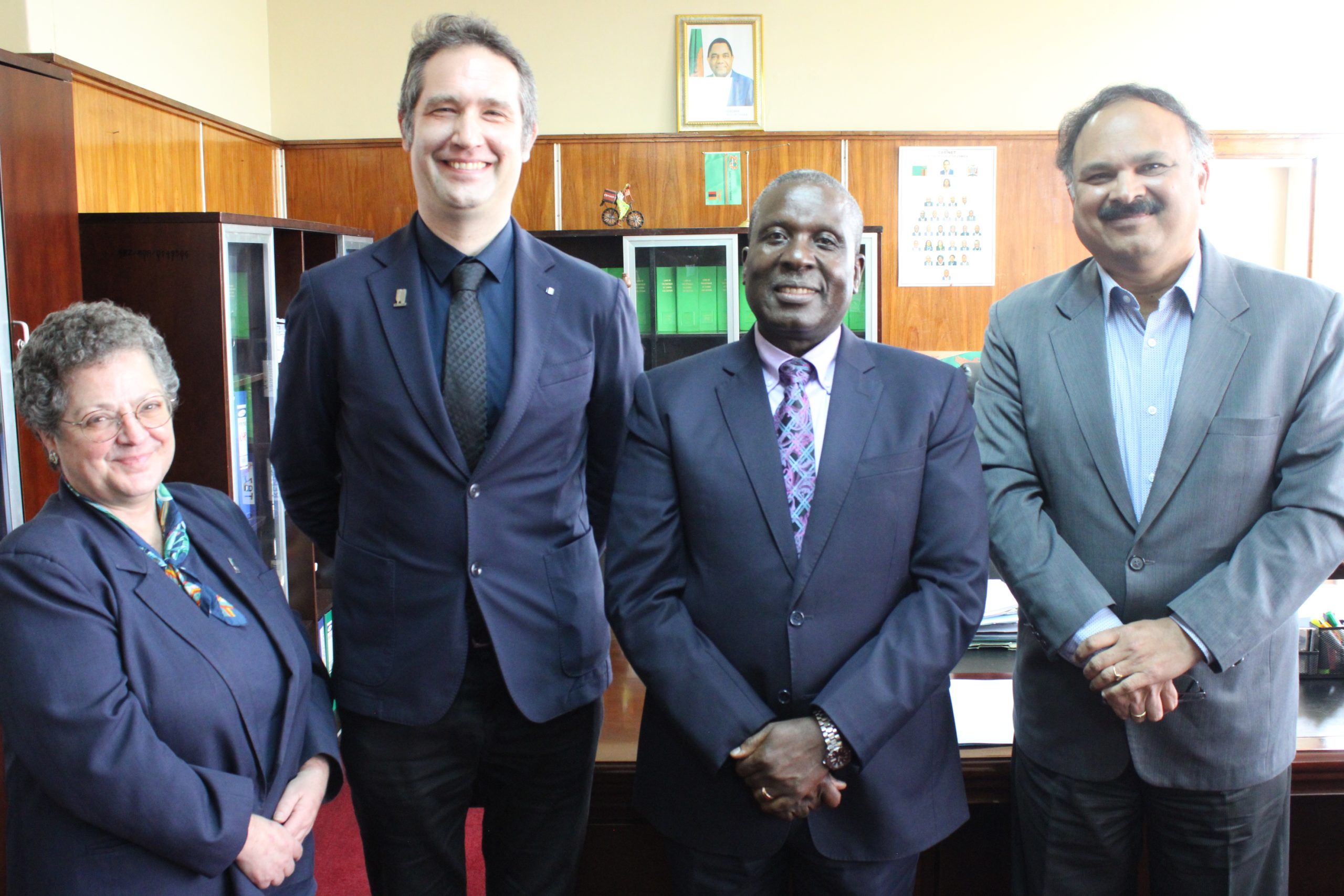
 Climate adaptation and mitigation
Climate adaptation and mitigation 